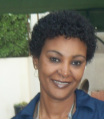My Reasons For Becoming An Attorney

I was born and raised in Sudan, where one of the dominant cultural values is collectivism. For almost three decades, I witnessed how an individual would care for another by putting his or her own needs last. This culture has formed my values and beliefs and significantly added to who I am today. At a young age, I learned how to be supportive and giving in a great sense of compassion. Thinking about the other has helped me in building and maintaining a high sense of integrity and advocating for justice and respecting others. The sense of caring for a community has always encouraged me to act and react for the benefit of all.
Despite this bright side of the Sudanese culture, the Sudanese citizens have suffered from many kinds of dictatorships. The longer a dictator rules the country, the greater the effect would be on the people and their ability to challenge a situation. A person would fear losing his or her employment, a chance to having an education, a threat of being tortured or killed, if he or she attempts to oppose the government or voice an opinion.
In many cases, this system resulted in having many individuals go through criminal proceeding without being represented. The system also allowed the appointment, as judges, of many individuals who do not have legal education or legal experience. It further allowed the holding of some secret hearings without allowing legal representation. Many of these hearings resulted in the execution of some individuals for their own personal and political opinions. The legal system in Sudan has also suffered from the dominant approach of the dictator. For example, many of the legal advocates face unlawful discharge or imprisonment when they challenge unjust legislation.
Many of cases I learned about had helped me to decide to study law and advocate for those who face such issues.
Today, many U.S citizens face very much what I experienced in Sudan such as police brutality, an unlawful discharge of an employee, the physical and sexual abuse of children, the increasing numbers of homeless people, the abandonment of a person facing criminal charges, or inadequate representation of indigent defendants. For these reasons, I decided again to study law in the US to be by the side of these vulnerable individuals.
Education:
- William Mitchell College of Law, JD 2010
- University of Khartoum/ Faculty of Law, LLB, magna cum laude, Khartoum, Sudan 1995
Legal Experience:
- Law Clerk/Linguist
Brigade Legal Office, Contractor at 1st Brigade Combat Team, 1st Cavalry Division, US Army (Iraq) 2011
- Law Clerk/ Linguist
Regimental Legal Office,Contractor at 3rd Army Cavalry Regiment, US Army (Iraq) 2010
- Certified Student Attorney
William Mitchell Misdemeanor Clinic/ City of White Bear Lake
Bar Admission:
State of Minnesota, 2012
Membership:
- American Bar Association, Family Law Section
-Minnesota State Bar Association, Children and the Law Section and Real Estate Section
- Ramsey County Bar Association, Family Law Section
Despite this bright side of the Sudanese culture, the Sudanese citizens have suffered from many kinds of dictatorships. The longer a dictator rules the country, the greater the effect would be on the people and their ability to challenge a situation. A person would fear losing his or her employment, a chance to having an education, a threat of being tortured or killed, if he or she attempts to oppose the government or voice an opinion.
In many cases, this system resulted in having many individuals go through criminal proceeding without being represented. The system also allowed the appointment, as judges, of many individuals who do not have legal education or legal experience. It further allowed the holding of some secret hearings without allowing legal representation. Many of these hearings resulted in the execution of some individuals for their own personal and political opinions. The legal system in Sudan has also suffered from the dominant approach of the dictator. For example, many of the legal advocates face unlawful discharge or imprisonment when they challenge unjust legislation.
Many of cases I learned about had helped me to decide to study law and advocate for those who face such issues.
Today, many U.S citizens face very much what I experienced in Sudan such as police brutality, an unlawful discharge of an employee, the physical and sexual abuse of children, the increasing numbers of homeless people, the abandonment of a person facing criminal charges, or inadequate representation of indigent defendants. For these reasons, I decided again to study law in the US to be by the side of these vulnerable individuals.
Education:
- William Mitchell College of Law, JD 2010
- University of Khartoum/ Faculty of Law, LLB, magna cum laude, Khartoum, Sudan 1995
Legal Experience:
- Law Clerk/Linguist
Brigade Legal Office, Contractor at 1st Brigade Combat Team, 1st Cavalry Division, US Army (Iraq) 2011
- Law Clerk/ Linguist
Regimental Legal Office,Contractor at 3rd Army Cavalry Regiment, US Army (Iraq) 2010
- Certified Student Attorney
William Mitchell Misdemeanor Clinic/ City of White Bear Lake
Bar Admission:
State of Minnesota, 2012
Membership:
- American Bar Association, Family Law Section
-Minnesota State Bar Association, Children and the Law Section and Real Estate Section
- Ramsey County Bar Association, Family Law Section
